#Anton Janša
Text
Happy World Honey Bee Day 2023!

Happy World Honey Bee Day 2023 (May 20th)!
Save and support these wonderful animals, they work hard for our planet :)
World Bee Day has been celebrated on 20 May since 2018. On this day in 1734, Anton Janša was born and is considered a pioneer of modern beekeeping. The commemoration day was proposed by Slovenia within the United Nations Organisation and adopted on 20 December 2017. In 2019, 15 official events were held across three continents. An International Round Table was held in Rome.
The aim of World Bee Day is to highlight the immense importance of bees to a broad public. Due to their indispensable pollination service, they promote biological biodiversity and food security for humans, but also for animals. Furthermore, this commemorative day is intended to draw attention to the sharp decline in the bee population and the need to protect these insects.
Bees are known for their role in pollination and honey bees are also known for the production of honey and other bee products. Besides the honey bee, there are about 30,000 species of wild bees worldwide. Of these, 548, a good 550, or even 574 species live in Germany, depending on experts, year of publication and species concept used, of which almost half are considered threatened.
Source: German Wikipedia, Translation mine.
Picture by Ottó auf Pixabay
8 notes
·
View notes
Text
#DidYouKnow bees perform about 80% of all pollination worldwide?
World Bee Day is celebrated on May 20. On this day Anton Janša, the pioneer of beekeeping, was born in 1734.
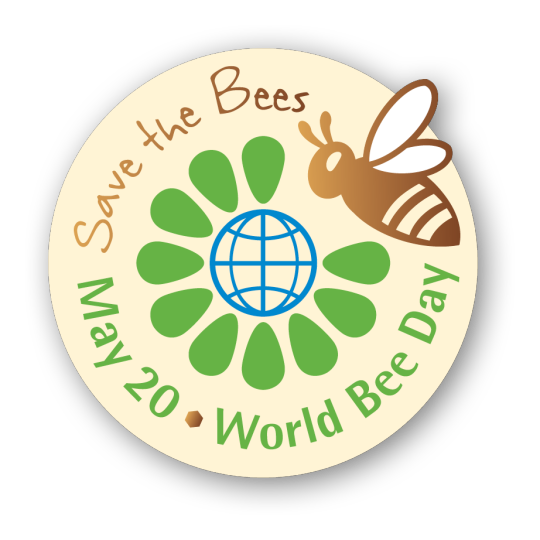

40 notes
·
View notes
Text
Saturday Surprise -- Happy World Bee Day!!! 🐝
I reprise this post every year on this day, and today it just happens to fall on Saturday, so I can make World Bee Day our Saturday Surprise! Today is World Bee Day and I cannot think of another species that deserves its own day of celebration more than bees! Quite literally, our lives depend on bees, and the bee population has been in serious decline for years now. Bee kind … plant some…
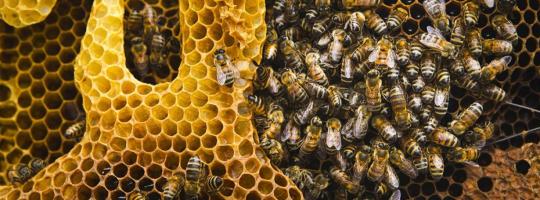
View On WordPress
0 notes
Text

#Seven Years War#A Discussion on the Swarming of Bees#A Complete Guide to Beekeeping#world bee day#20th may#There is no planet B(ee)#This man is considered to be the world's first teacher to teach apiculture or beekeeping. But#it was not his actual profession#to begin with. He was more renowned as a painter during those times. So#what made him become a beekeeper? On World Bee Day#knowing about this Slovenian legendary personality and his journey towards beekeeping will be a great way to start our journey to understan#The beautiful yellow and black stripes are what makes one identify a bee. Image Source: Latest LY.#World Bee Day#Anton Janša#born in 18th century Austria#grew up to be a famous painter. But#soon he realised that he needed to do something for a better living and that paintings would not help him survive#so he decided to try his hands at agriculture. But then#he thought he should do something that he likes doing. And it was beekeeping!#In 1769#Maria Teresa#the ruling queen of the Hapsburg Empire (yes#she was that same queen from of your history syllabus) established a beekeeping school and wanted to improve her knowledg#she appointed Janša as the first teacher of apiculture by releasing an imperial decree in Vienna.#His books and were later used in the apiculture schools of Austria.#Bees live in colonies and communicate with each other by dancing. Image Source: Bee Keeper Facts.#Bees are as important as any other entity in the ecosystem. Even today#not many people understand the importance of bees. This is why the United Nations unanimously declared the birthday of Anton Janša#i.e. 20th May as World Bee Day. The purpose behind it is to spread awareness of the importance of bees and beekeeping.#There are over 20
1 note
·
View note
Photo


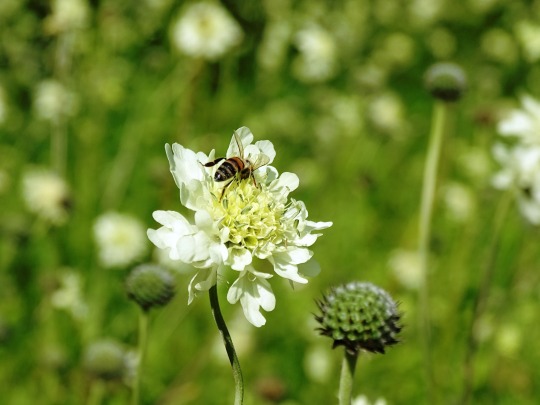
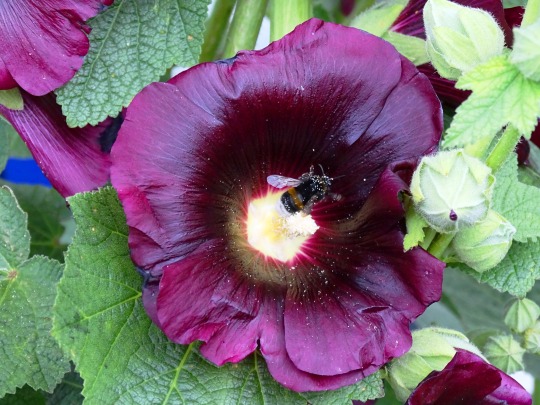


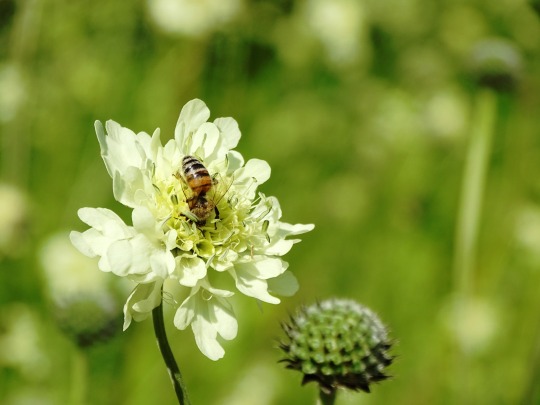
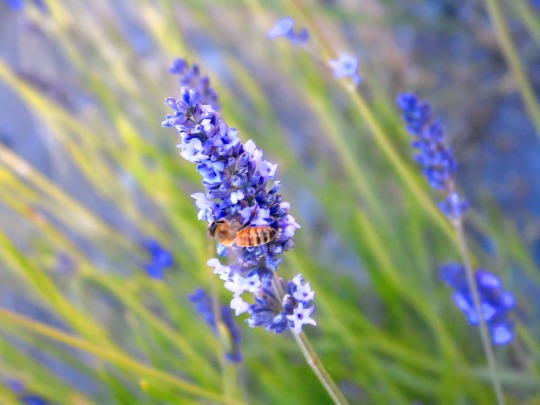
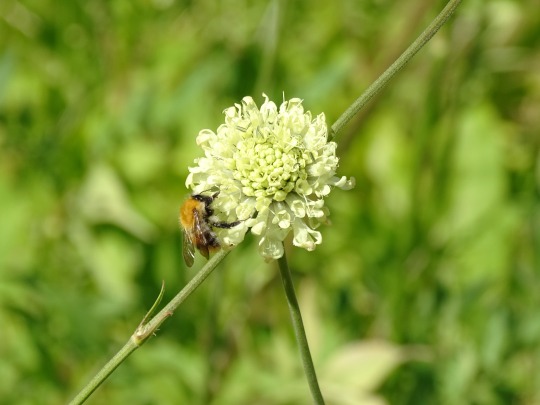
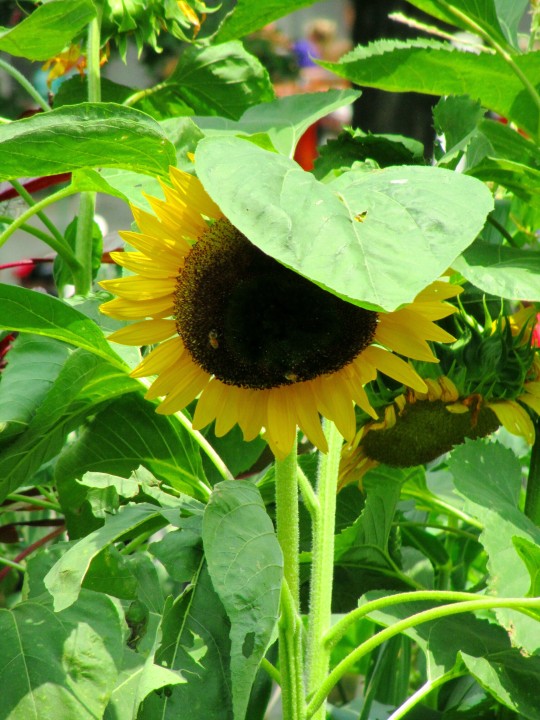
World Bee Day
Support bee conservation by donating or purchasing from companies that work to save these crucial members of the ecosystem, or start your own bee hive.
Lately, the concerns about bees being endangered have become widely noted among people all over the world, but information on how to take action about it has become scarce in this age.
That’s why World Bee Day exists to educate people about the importance of bees and how they can help preserve them for the sake of the future. If you want to help save these fuzzy insects from extinction, then read down below to find out what World Bee Day is about!
History of World Bee Day
World Bee Day corresponds with an important influencer in the pioneering of beekeeping. Anton Janša, who in the 18th century pioneered modern beekeeping techniques in his native Slovenia, was one of the first people to help bring about the importance of bees in the world environment.
Since then, beekeeping has become a vital necessity in the world’s ecosystems and economic systems. However, not many people realize the importance of bees or know how to help save the bees, which led to the announcement of World Bee Day through the United Nations.
The United Nations designated World Bee Day to raise awareness of the importance of bees. Bees are under a continuous threat from human activity, which includes the introduction of invasive insects, pesticides, land-use change, and monocropping practices, which have continuously been destroying bee colonies over time.
World Bee Day helps educate people about the importance of bees and what they do for the environment, which includes how they help grow 90% of the world’s wildflower plants, 35% of the world’s crops depend on bees to grow, and how they help build ecosystems all over the world. With these statistics, the United Nations has created various programs all over the world to increase awareness of protecting bees and what you can do to help this cause.
This day is also open to other pollinators as well as bees, like bats, hummingbirds, and butterflies. Together these essential animals help keep ecosystems healthy and maintain biodiversity. Bees and other creatures also help us fight problems on a global level, like world hunger and helping to adapt to climate change. These fantastic fuzzy creatures help keep our plants and our planet alive.
If you look at bees as creatures, they are a fascinating insect even without all the services they provide for us. For instance, the phrase bee’s knees makes absolutely no sense, because bees actually don’t have knees. Bees also communicate by dancing – can you imagine if humans didn’t talk and only communicated via the medium of dance? If you consider honey as well, it has also been used as an antiseptic and treatment for burns and wounds for centuries.
Bees have been around for thousands of years, and the very first bee found was 100 million years old! Bees might also have been the very first species to decide to go vegetarian. Originally, our fuzzy friends used to eat other insects, but they evolved to eat nectar and pollen instead. Bees have long supported us, humans with honey being a monumental discovery for our ancestors (it must have been tough for them to gather!).
From sweetening food to dressing wounds, we loved honey so much that our children are still named after bees. Names like Melissa and Ali mean bee in Greek and Urdu, showing that across the world, we share a global appreciation for bees.
World Bee Day Timeline
13000-8000 BC People get honey from wild bees
Enjoying the sought after sweetness of honey and usefulness of wax, people climb ladders to reach the nests of wild bees.
200 AD Bee hives in Ancient Egypt
With bees that may have been more aggressive, beekeepers approach the hives with shaven heads to prevent the bees from reacting to the perfumed oils used in the hair.
1621 Beehives are sent to the colonies
To help the people of the colonies survive, supplies that include beehives are sent on ships from London to Virginia.
2006 Colony Collapse Disorder is first reported
Beekeepers begin reporting high losses where adult bees literally just disappear from the hive, leaving the queen and immature bees inadequately attended to.
2008 The Secret Life of Bees film is released
Based on a book of the same name by Sue Monk Kidd and set in the 1960s southern US, this movie stars Dakota Fanning as a young girl who runs away in search of her mother.
How to Celebrate World Bee Day
If you want to do more, find a charity that helps towards bee conservation, and donate through there. Many bee charities offer their own merchandise, which goes directly back into their profits, like bee jewelry or clothing.
Why not purchase your own Bee Tee or give your loved ones a unique bee necklace to share the love? Many bee charities also arrange their own events, awareness campaigns, and particular ways of donating, so why not support a charity near you to show support for our buzzing buddies.
Start a garden and place with a full arrangement of fruits, vegetables, and flowers that you know bees would like. Only have limited space? If you have a balcony or terrace, you can buy nectar-bearing flowers and pot them in your available area for both decorative and bee-saving purposes.
Plants like sunflowers, poppy, and our much-loved food favorites like thyme, dill, and fennel are perfect for pollinators. You can even create a pollination station for bees in your garden or outdoor space to benefit from. Make a friendly environment for bees, butterflies, and any local pollinators to help their habitats.
Looking to be more proactive about how you purchase your food? Go to a local beekeeper and buy honey from them. You could go for honey and many other hive products. Talking to a local beekeeper will also help you find suitable ways to keep your garden or outdoor space a bee-friendly environment.
Avoiding harmful pesticides will keep pollinators happy, and if you have to spray anything, doing so in the morning or late at night will ensure that your bees don’t get caught in the crossfire. If you’re lucky enough to have a larger outdoor space that’s filled with wildflowers, keeping part of it preserved will mean that your bees have the perfect natural environment to enjoy.
If you’re looking for a way to help raise awareness of bee endangerment, then share and spread the news about World Bee Day through social media.
Source
#bumblebee#World Bee Day#WorldBeeDay#20 May#bee#insect#animal#wildlife#flower#original photography#flora#fauna#Sweden#USA#travel#vacation#Damariscotta Shell Midden Historic District#Tyresö#Washington#Purple Haze Organic Lavender Farm#sunflower#nature#tourist attraction#Battery Urban Garden#New York City#silkweed
3 notes
·
View notes
Text

20 de maio - Dia Mundial da Abelha
“Se as abelhas desaparecerem da face da Terra, a humanidade terá apenas mais quatro anos de existência. Sem abelhas não há polinização, não há reprodução da flora, sem flora não há animais, sem animais, não haverá raça humana.” Albert Einstein
O Dia Mundial da Abelha, que se celebra a 20 de maio, foi proclamado pela Resolução 72/211 adotada na Assembleia Geral da ONU de 20 de dezembro de 2017.
Com a escolha do dia a ONU presta uma homenagem a Anton Janša (20 de maio de 1734 - 13 de setembro de 1773), apicultor, entomologista, zoólogo e pintor esloveno, pioneiros das modernas técnicas de apicultura.
No dia 20 de maio de cada ano, para além de ser dado destaque à importância dos seres polinizadores para a conservação da biodiversidade dos ecossistemas procura-se sensibilizar-nos para as ameaças que as abelhas enfrentam.
Entre as principais ameaças às abelhas e restantes polinizadores destacamos a degradação dos habitats naturais, a agricultura intensiva, o uso de pesticidas e herbicidas, e a introdução de espécies invasoras que só podem ser eficazmente combatidas através da implementação de políticas públicas aos mais diversos níveis.
Neste Dia Mundial da Abelha o Núcleo dos Açores da IRIS- Associação Nacional de Ambiente apela, a todos os açorianos, para agirem de modo a contribuírem para a construção de uma Terra melhor para todos os seus habitantes, salvando as abelhas através das seguintes práticas:
- Partilha de informação sobre a importância dos polinizadores e as suas principais ameaças;
- Aquisição de mel a produtores locais;
- Não utilização de pesticidas, herbicidas e outros produtos nocivos, nos seus jardins e quintais;
- Plantação de espécies nativas que floresçam em diferentes épocas do ano ou de outras espécies melíferas.
Dia Mundial da Abelha, 20 de maio de 2023
IRIS- Núcleo Regional dos Açores
1 note
·
View note
Text
20 mai journée mondiales des abeilles
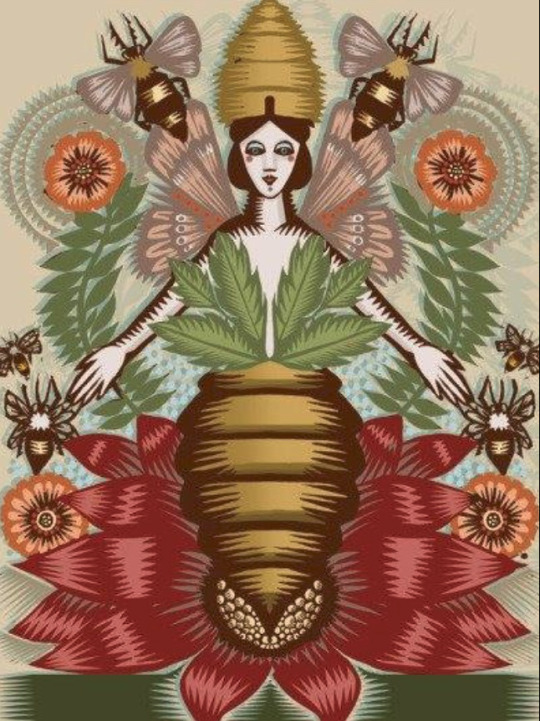
En 2017, l’ONU a consacré le 20 mai "Journée Mondiale de l’Abeille". Cette date du 20 mai a été choisie en l’honneur de l’apiculteur slovène Anton Janša, né ce même jour. Il est considéré par la profession comme le créateur des méthodes d’apiculture moderne. Cette journée a pour objectif de souligner le rôle de cet insecte et des autres polinisateurs dans la conservation de la biodiversité et dans la sécurité alimentaire et nutritionnelle. Ayons de douces pensées pour nos abeilles !L’ABEILLE Seigneur, préservez-moi, préservez ceux que j’aime,Frères, parents, amis, et mes ennemis mêmeDans le mal triomphant,De jamais voir, Seigneur, l’été sans fleurs vermeilles,La cage sans oiseaux, la ruche sans abeilles,La maison sans enfants!…O vous dont le travail est joie,Vous qui n’avez pas d’autre proieQue les parfums, souffles du ciel;Vous qui fuyez quand vient décembre,Vous qui dérobez aux fleurs l’ambrePour donner aux hommes le miel. - Victor Hugo
#journéemondialesdesabeilles
0 notes
Text

Happy Bee Day!
World Bee Day is celebrated on May 20. On this day Anton Janša, the pioneer of beekeeping, was born in 1734. The purpose of the international day is to acknowledge the role of bees and other pollinators for the ecosystem.
Raising awareness of the importance of bees and beekeeping, informing the public of beekeeping events around the world and celebrating World Bee Day.See here:
https://www.worldbeeday.org/en/
4 Amazing Facts About Bees - See here:
http://www.crystalwind.ca/pet-friendly-paths/celebrate-bee-day-with-these-4-amazing-facts-about-bees
0 notes
Photo

World Bee Day corresponds with an important influencer in the pioneering of beekeeping. Anton Janša, who in the 18th century pioneered modern beekeeping techniques in his native Slovenia, was one of the first people to help bring about the importance of bees in the world environment. Since then, beekeeping has become a vital necessity in the world’s ecosystems and economic systems. However, not many people realize the importance of bees or know how to help save the bees, which led to the announcement of World Bee Day through the United Nations. The United Nations designated World Bee Day to raise awareness of the importance of bees. Bees are under a continuous threat from human activity, which includes the introduction of invasive insects, pesticides, land-use change and monocropping practices; they have continuously been destroying bee colonies over time. World Bee Day helps educate people about the importance of bees and what they do for the environment, how they help grow 90% of the world’s wildflower plants, 35% of the world’s crops depend on bees to grow, and help build ecosystems all over the world. With these statistics, the United Nations has created various programs all over the world to increase awareness of protecting bees and what you can do to help this cause. #BeeDay #RacketOfTheDay #CustomMade #TennisRacket #BreakTheTie (em United Nations) https://www.instagram.com/p/Cdx3_mwgQXp/?igshid=NGJjMDIxMWI=
0 notes
Photo
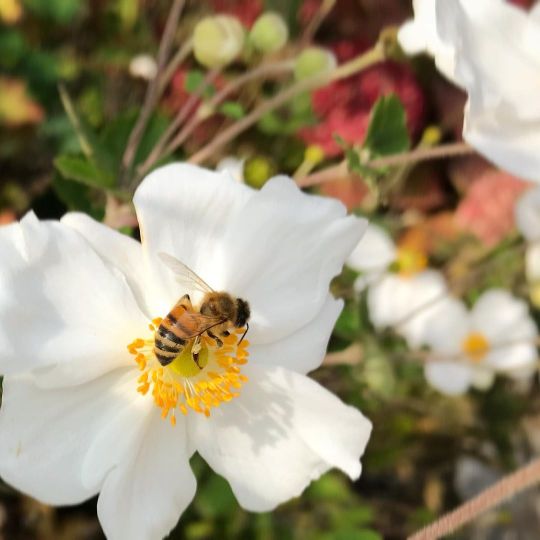
Il 18 ottobre 2017, l'Assemblea generale delle Nazioni Unite ha deciso di designare il 20 maggio, la Giornata mondiale delle api 🐝 🐝 🐝. Il 20 maggio è stato scelto per la giornata annuale poiché coincide con la data di nascita di Anton Janša (1734-1773), che nel XVIII secolo fu un pioniere delle tecniche di apicoltura moderne nel suo paese natale, la Slovenia, un paese che ha promosso la celebrazione e ha riconosciuto questi insetti per la loro capacità di lavorare richiedendo pochissima attenzione allo stesso tempo. Api, farfalle ed altri insetti hanno un'influenza sostanziale su cibi come frutta e verdura che dipendono direttamente dagli impollinatori. Le api sono sempre più minacciate dalle attività umane. Insetti, pesticidi, cambiamenti nell'uso del suolo possono ridurre i nutrienti a loro disposizione e rappresentare quindi una minaccia per le loro spesso numerose colonie. Preserviamo l’ambiente che ci circonda, preserviamo le api. Ricordate: “Without bees there is no PLANet B”. #giornatamondialedelleapi #beesworldday #ambiente #green #parma #visitparma #igersparma #visitemilia #inemiliaromagna #igersemiliaromagna #parmense #parmawelcome #parmakids (presso Parma, Italy) https://www.instagram.com/p/CdxhO-1MDWr/?igshid=NGJjMDIxMWI=
#giornatamondialedelleapi#beesworldday#ambiente#green#parma#visitparma#igersparma#visitemilia#inemiliaromagna#igersemiliaromagna#parmense#parmawelcome#parmakids
0 notes
Text
Explainer: What is World Bee Day and why is it celebrated?
Explainer: What is World Bee Day and why is it celebrated?
Explainer: What is World Bee Day and why is it celebrated?
The day marks the birth anniversary of Anton Janša, a pioneer of modern apiculture. New Delhi, May 20: The World Bee Day is annually celebrated on 20 May with an aim to spread awareness of the roles played by bees in
The day marks the birth anniversary of Anton Janša, a pioneer of modern apiculture. New Delhi, May 20: The World Bee Day…
View On WordPress
0 notes
Text
It's World Bee Day, so let's marvel at AI hives that know exactly what bees need
It’s World Bee Day, so let’s marvel at AI hives that know exactly what bees need
Friday the 20th of May is the day the world comes together to celebrate bees. It was chosen for World Bee Day in honor of the birthday of a pioneer of modern apiculture, Anton Janša, and is recognized by the UN General Assembly. While it can seem like almost everything has its own day now, bees are a hugely important part of our ecosystem, so it’s worth celebrating them, in this case by…
View On WordPress
0 notes
Text
Happy World Bee Day!!! 🐝
Happy World Bee Day!!! 🐝
In the midst of so much happening in the world, I almost missed World Bee Day!!! I was reminded when I saw a post by my friend Bee Halton — thank you, Sweet Bee! This is a re-post of the one I wrote two years ago for World Bee Day, but some of you haven’t yet seen it, others may have forgotten it, and it says everything I would say if I wrote a whole new post. Today is World Bee Day and I…
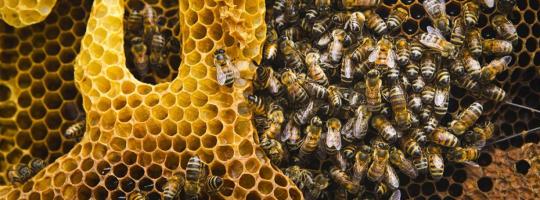
View On WordPress
0 notes
Link
1 note
·
View note
Photo
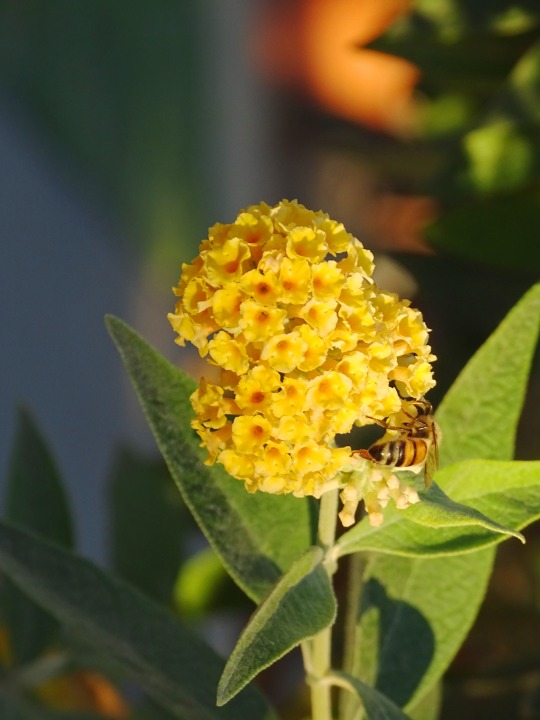
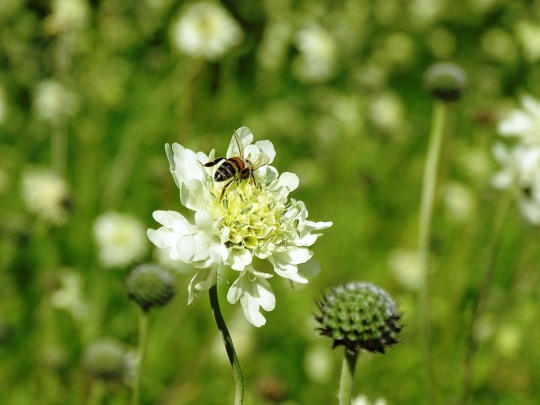
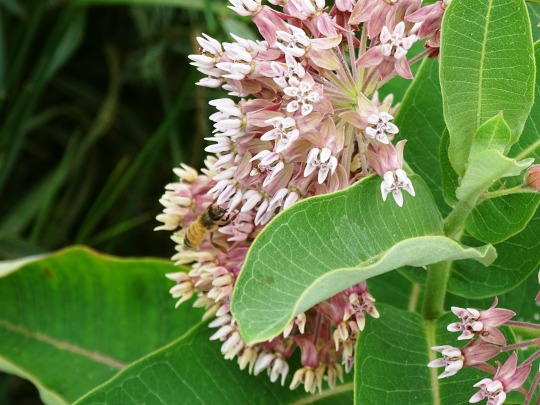
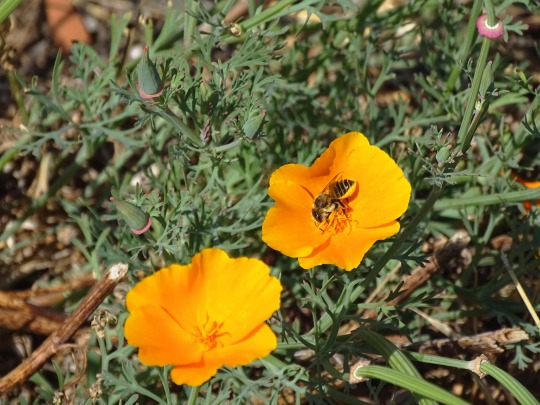

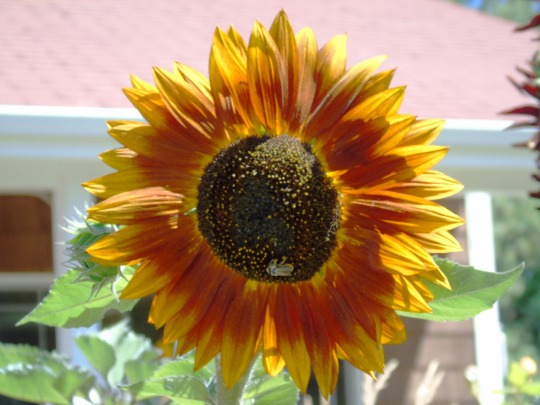


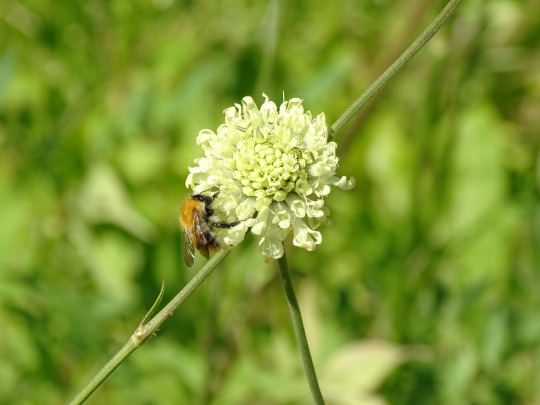

World Bee Day
Support bee conservation by donating or purchasing from companies that work to save these crucial members of the ecosystem, or start your own bee hive.
Lately, the concerns about bees being endangered have become widely noted among people all over the world, but information on how to take action about it has become scarce in this age.
That’s why World Bee Day exists to educate people about the importance of bees and how they can help preserve them for the sake of the future. If you want to help save these fuzzy insects from extinction, then read down below to find out what World Bee Day is about!
History of World Bee Day
World Bee Day corresponds with an important influencer in the pioneering of beekeeping. Anton Janša, who in the 18th century pioneered modern beekeeping techniques in his native Slovenia, was one of the first people to help bring about the importance of bees in the world environment.
Since then, beekeeping has become a vital necessity in the world’s ecosystems and economic systems. However, not many people realize the importance of bees or know how to help save the bees, which led to the announcement of World Bee Day through the United Nations.
The United Nations designated World Bee Day to raise awareness of the importance of bees. Bees are under a continuous threat from human activity, which includes the introduction of invasive insects, pesticides, land-use change, and monocropping practices, which have continuously been destroying bee colonies over time.
World Bee Day helps educate people about the importance of bees and what they do for the environment, which includes how they help grow 90% of the world’s wildflower plants, 35% of the world’s crops depend on bees to grow, and how they help build ecosystems all over the world. With these statistics, the United Nations has created various programs all over the world to increase awareness of protecting bees and what you can do to help this cause.
This day is also open to other pollinators as well as bees, like bats, hummingbirds, and butterflies. Together these essential animals help keep ecosystems healthy and maintain biodiversity. Bees and other creatures also help us fight problems on a global level, like world hunger and helping to adapt to climate change. These fantastic fuzzy creatures help keep our plants and our planet alive.
If you look at bees as creatures, they are a fascinating insect even without all the services they provide for us. For instance, the phrase bee’s knees makes absolutely no sense, because bees actually don’t have knees. Bees also communicate by dancing – can you imagine if humans didn’t talk and only communicated via the medium of dance? If you consider honey as well, it has also been used as an antiseptic and treatment for burns and wounds for centuries.
Bees have been around for thousands of years, and the very first bee found was 100 million years old! Bees might also have been the very first species to decide to go vegetarian. Originally, our fuzzy friends used to eat other insects, but they evolved to eat nectar and pollen instead. Bees have long supported us, humans with honey being a monumental discovery for our ancestors (it must have been tough for them to gather!).
From sweetening food to dressing wounds, we loved honey so much that our children are still named after bees. Names like Melissa and Ali mean bee in Greek and Urdu, showing that across the world, we share a global appreciation for bees.
World Bee Day Timeline
13000-8000 BC People get honey from wild bees
Enjoying the sought after sweetness of honey and usefulness of wax, people climb ladders to reach the nests of wild bees.
200 AD Bee hives in Ancient Egypt
With bees that may have been more aggressive, beekeepers approach the hives with shaven heads to prevent the bees from reacting to the perfumed oils used in the hair.
1621 Beehives are sent to the colonies
To help the people of the colonies survive, supplies that include beehives are sent on ships from London to Virginia.
2006 Colony Collapse Disorder is first reported
Beekeepers begin reporting high losses where adult bees literally just disappear from the hive, leaving the queen and immature bees inadequately attended to.
2008 The Secret Life of Bees film is released
Based on a book of the same name by Sue Monk Kidd and set in the 1960s southern US, this movie stars Dakota Fanning as a young girl who runs away in search of her mother.
How to Celebrate World Bee Day
If you want to do more, find a charity that helps towards bee conservation, and donate through there. Many bee charities offer their own merchandise, which goes directly back into their profits, like bee jewelry or clothing.
Why not purchase your own Bee Tee or give your loved ones a unique bee necklace to share the love? Many bee charities also arrange their own events, awareness campaigns, and particular ways of donating, so why not support a charity near you to show support for our buzzing buddies.
Start a garden and place with a full arrangement of fruits, vegetables, and flowers that you know bees would like. Only have limited space? If you have a balcony or terrace, you can buy nectar-bearing flowers and pot them in your available area for both decorative and bee-saving purposes.
Plants like sunflowers, poppy, and our much-loved food favorites like thyme, dill, and fennel are perfect for pollinators. You can even create a pollination station for bees in your garden or outdoor space to benefit from. Make a friendly environment for bees, butterflies, and any local pollinators to help their habitats.
Looking to be more proactive about how you purchase your food? Go to a local beekeeper and buy honey from them. You could go for honey and many other hive products. Talking to a local beekeeper will also help you find suitable ways to keep your garden or outdoor space a bee-friendly environment.
Avoiding harmful pesticides will keep pollinators happy, and if you have to spray anything, doing so in the morning or late at night will ensure that your bees don’t get caught in the crossfire. If you’re lucky enough to have a larger outdoor space that’s filled with wildflowers, keeping part of it preserved will mean that your bees have the perfect natural environment to enjoy.
If you’re looking for a way to help raise awareness of bee endangerment, then share and spread the news about World Bee Day through social media.
World Bee Day FAQs
Do bumble bees sting?
While female bumble bees do have stingers, they rarely sting. Stings can be avoided by remaining calm and not provoking them.
How do bees make honey?
Bees make honey by sucking the nectar from flowers, regurgitating it when they get back to the hive, and then reducing the water content by passing it mouth-to-mouth until it turns into honey.
How long do bees live?
Worker bees live from 2-20 weeks, drones from 30-55 days and queen bees 1-5 years.
What do bees eat?
Bees feed on the pollen and nectar that is collected by the foragers.
Are bees endangered?
Studies and records have suggested that bee populations are declining worldwide due to climate change, loss of habitat and pesticides and more.
Source
#Tyresö Park#Stockholm County#Brix Restaurant & Gardens#silkweed#USA#Damariscotta Shell Midden Historic District#Purple Haze Lavender Farm#travel#sunflower#original photography#Sweden#summer 2020#2017#2022#flora#nature#flowers#blooming#garden#insect#wasp#bumblebee#animal#wildlife#World Bee Day#20 May#WorldBeeDay#international day#close up#vacation
1 note
·
View note
Text
Comumente produzido em zonas rurais, a apicultura (criação de abelhas) começa também a ganhar espaços nas zonas urbanas, criadas principalmente dentro de casa, seja em quintal ou até em apartamentos. Para isso existem algumas regras estabelecidas por lei, como a necessidade da abelha ser de uma espécie que não possua ferrão.
Segundo a médica veterinária, Louise Santos, o primeiro passo é saber se no município que o interessado reside, a legislação municipal permite a prática da apicultura. Uma vez que para a autorização ser concedida, precisa-se escolher as espécies.
“As mais indicadas são as abelhas da espécie Melipona, porque elas não possuem ferrão. Já as abelhas do gênero Apis, que são as abelhas que produzem ferrão, até produzem uma quantidade maior de mel, mas podem machucar a pessoa que deseja criar e gerar um desconforto entre os vizinhos”, explica Louise Santos.
A especialista informa que a produção de mel não necessita de investimento elevado. “As abelhas são autossuficientes, o que significa que elas são muito bem desenvolvidas no sentido de execução de tarefas, cada uma sabe exatamente qual tarefa deve ser executada. É esse instinto social que as tornam muito eficientes nas práticas das tarefas a serem executadas dentro da colmeia. O trabalho do apicultor é proteger a colmeia e realizar a extração do mel quando ele estiver pronto”, destaca Louise Santos, que também é professora da Faculdade UniFTC Itabuna.
Entre o gênero de abelhas Melipona, as mais recomendadas para criação dentro de casa são: uruçu (Melipona scutellaris), tiúba (Melipona fasciculata), jandaíra (Melipona subnitida), uruçu-cinzenta (Melipona manaosensis), mandaçaia (Melipona quadrifasciata anthidioides) jataí (Tetragonisca angustula).
Dia Mundial da Abelha - O Dia Mundial das Abelhas foi estabelecido pela Organização das Nações Unidas (ONU) durante a Assembleia Geral das Nações Unidas em dezembro de 2017 e é comemorado todo dia 20 de maio desde 2018. O dia escolhido foi uma homenagem ao esloveno Anton Janša, nascido em 1734 e considerado o pioneiro da apicultura moderna.
Cartilha - Os interessados em saber mais sobre abelhas, podem pesquisar nesta cartilha da Empresa Brasileira de de Pesquisa Agropecuária (Embrapa), empresa pública de pesquisa vinculada ao Ministério da Agricultura, Pecuária e Abastecimento do Brasil (https://ainfo.cnptia.embrapa.br/digital/bitstream/item/166288/1/CriacaoAbelhaSemFerrao.pdf).
0 notes